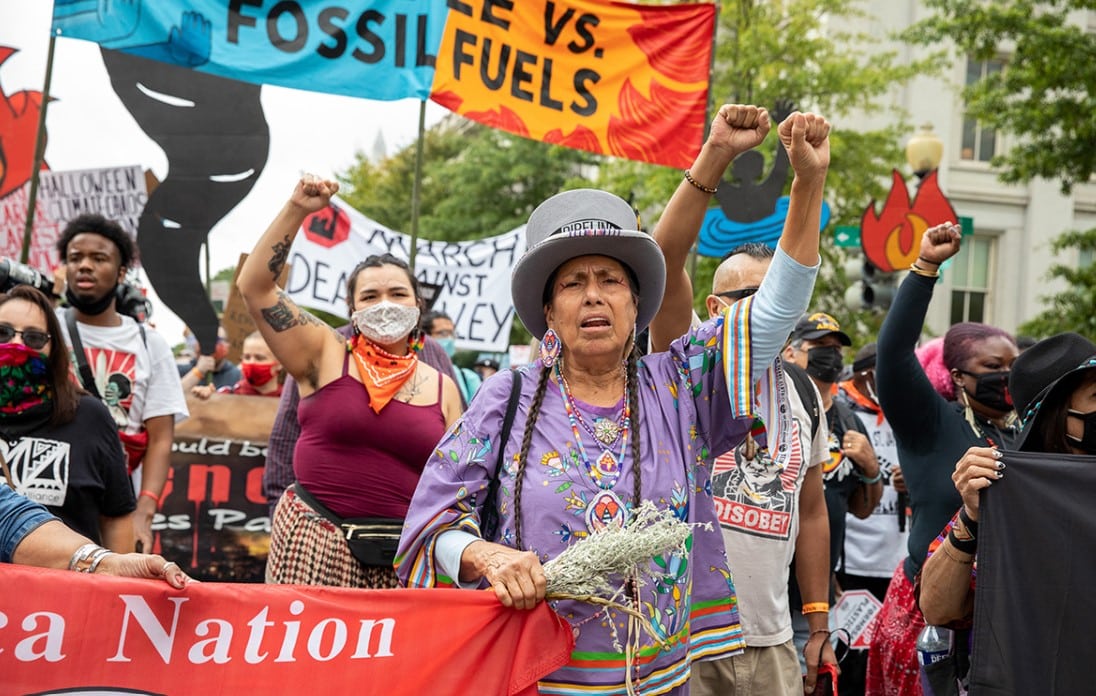Overcoming performative allyship in the era of reconciliation
Reflecting on the true essence of reconciliation can help us pursue real progress amidst a sea of performative activism.
Recent Liberal decisions made by Canadian governmental bodies have placed a distinct emphasis on Indigenous reconciliation. With many politicians jumpstarting their efforts to heal Indigenous relations, they claim to apologize for Canada’s brutally successful execution of cultural genocide and religious homogenization.
Following former Prime Minister Stephen Harper’s public apology for the Canadian government’s involvement in Residential Schools in 2008, quantifiable progress has been made toward the reconciliation effort by various institutions. However, in August of 2022, Finance Minister Chrystia Freeland asserted that it is a “political responsibility for us as a country to support our allies with energy security.” The “political responsibility” Freeland references is the dependence Germany has on Russian oil, considering the recent events of the Russian-Ukrainian War.
What Freeland does not mention is that Canada plans on meeting this political responsibility and compensating for Germany’s energy transition by using fracked oil from Indigenous lands—particularly the land of the Wolastoqewiyik (People of the Beautiful and Bountiful River)—whose cultural and individual identities are dependent on the wellness of their physical environment.
People in positions of power know past wrongs must be amended, but their efforts and activism lack the crucial inter-cultural connectedness, communication, and authenticity needed to repair broken trust and elicit real change.
The reconciliatory process has been, at times, a show of performative allyship. Canada’s tentative decision to support fracking on Indigenous lands as a guise of political responsibility has made me reconsider the actual effectiveness of our country’s empty promises. Since Prime Minister Trudeau’s taking of office in 2015, reconciliation funding has increased by around $2.4 billion each year, however, financial, and economic compensations are only the starting point of a healing journey with no definite end.
Damage began with the forceful and unjust confiscation of power from Indigenous Peoples—from enforcing authority over their lands to snatching their identities and futures. Given this, I believe that the only plausible path towards true reconciliation and unity is through doing what is necessary for Indigenous communities to reclaim their strength, which includes, but is not limited to, helping them create a nourishing space so that we may all connect with each other from a place of fullness and not dependency.
Devaluing the cultural connectedness that Indigenous Peoples have with their lands through environmentally-destructive practices is an obvious step in the wrong direction—one that brutally reminds the victims of their own powerlessness. As young adults, we may be faced with the futility of our activism efforts, but I know that through conversations, local activism, and solidarity, we can create spaces for Indigenous individuals to gather momentum and strengthen their cultural identities.
Associate Opinion Editor (Volume 50) — Mashiyat (”Mash”) is a second-year student completing a specialist in Neuroscience and a double minor in Biology and Professional Writing and Communications (PWC). As an associate opinion editor, she hopes to use her voice to encourage others to write freely and unabashedly about the things that mean most to them. In her free time, Mash can be found striking up conversations with strangers in the city, cooking for her family, and being anxious about her nebulous career plans!


